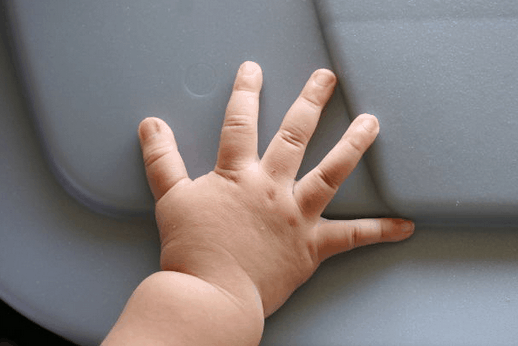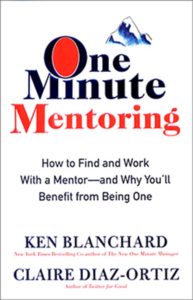Last year, one of my friends had a baby. It was a natural birth. It was also a home birth. It was also her fifth.
Yup.
A mere hour or so before giving birth, she was apparently chatting on Skype with some other bloggers, saying it was time to put on some mascara (for the post-birth baby photos) before going ahead and pushing out the baby. Shortly thereafter, she did just that, and welcomed her sweet fifth babe into the world.
Although I overwhelmingly tend to think she is a superhuman and no worldly rules apply to her, there is another theory.
It goes something like this: My friend had practiced giving birth so many times (through birthing four children prior) that she had perfected the art of what she was doing (giving birth).
Malcolm Gladwell is known for stating that 10,000 hours of practice in any field can lead to mastery. Although birthing five children may or may not add up to 10,000 hours (ask Mom), I still believe that mastery in this case was achieved through practice (obviously aided by the lack of serious complications).
Birthing five children is, after all, more practice than the average American woman gets, and so there is a reason that my friend is much better at birthing than I will be when I give birth to my first child.
However, I also believe that practice – whether in terms of 10,000 hours or five precious infants – is gained not simply through putting in the time. There are three critical elements to practice that must be present in order to achieve perfection.
1. Do it many times. Whether it’s giving birth, writing a blog post, or delivering a speech, you must do the act many, many times. There are no shortcuts to escaping the most obvious – and most necessary – aspect of practicing to reach perfection. Do the work.
2. Do it in different ways. If I want to master the art of roasting a chicken, I can’t simply slice a garlic clove in half and shove it up every bird. I need to change my approach in order to find the best way to achieve a perfect roast. Lemon, pepper, rosemary, and other seasonings and techniques are important things for me to try.
3. Track what works (and what doesn’t) to get better with each and every try. Without measuring your success (or lack thereof), you don’t know what is working. When I first started blogging in 2006, my strategy for traffic generation mirrored the way many non-cooks make spaghetti and determine if it is cooked. I randomly threw out different strategies and sometimes they stuck. (In pasta terms, this is like putting noodles in water, not timing them, and then randomly start throwing them on the wall to see if they stick when you “think” they are ready.) Over time, I started actually keeping note of what I was doing to determine what was actually working. This is what helped me get better.
Ultimately, practice is about is not just about the time you put in, but the type of hours you dedicate.
Have you perfected (or nearly perfected) anything through intense hours of practice? Did perfection occur randomly, or did you consciously work to achieve it?





Great question. I don’t know if anyone ever really becomes “perfect” at anything for very long, no matter how much they practice. I think its more a question of achieving a series of temporary “fitness peaks” and then adapting and re-perfecting as new situations and new challenges arise. I first read about the concept in one of Michael Crichton’s books back in the nineties, and it made a lot of sense to me. There’s been a lot of research on the subject, and here is just one recent example that I found by a quick googling.
http://www.sciencemag.org/content/339/6116/208
I think perfection is basically an ideal and a process and a challenge that never ends.
Basically you have to want it and be hungry for it and never settle for anything less. 😉
Practice: I just read your article sitting here in
Edmonton Airport about practice. It rang true for
me because I wanted to do an Ironman 140.6
and was a good runner but not a swimmer. After
25 meters of swimming I was tired . Sooooo, I hired
a good swim coach, practiced technique every
week for 10 months and swam the 21/2 miles
during the Arizona Ironman this pass Nov 18th
nice and easy. Hours and hours of practice, measuring
small improvements and performance. That comes
to mind when I read your article….enjoy the weekend!
Excellent piece. But you started saying something about blogging and then left it there.
I’m deeply interested. Please say more.
Although perfection may be a goal we can never actually attain other than perhaps temporarily, it does matter how we practice. It is well known among sports psychologists that “visualizing perfection” is the key to improving performance, and I have found that to be true. First you visualize what you want to do, then you try it. As you say, you notice what works and what doesn’t work, and then you keep trying and keep adjusting, always visualizing the perfection you seek. Gradually you will get better and better, and amazingly so. But it is the brain doing the work, and the process is subconscious.
nice one ,practice makes man perfect/…
Practice makes perfect. To master the art in any walk of life as has been mentioned in the article, do it many times and in different ways. Finally measure it to know where you stand! Whether you need further improvements! Go on
The best way to roast a chicken is to start with the right chicken. And the right fire. Everything else is a matter of taste. You should be able to find whatever you need in your own garden. Although having the right salt is always a must. 😉
P.S. Cooking is a big deal, too. Not too long. Not too short. Not too slow. Not too fast. You will get the hang of it. What you’re looking for is a beautiful chicken that is nice and crispy on the outside and nice and juicy on the inside. Of course there are many variables. The quest for perfection is never easy!
I appreciate the way you started this article with a very interesting example. It was ammusing at the beginning and so thought provoking. Never have i heard someone giving such an example for “Practice makes perfect”
Though the famous saying is “Practice makes perfect”, my pastor likes to correct me by saying “Practice makes permanent”. I think she meant if you practice in an incorrect way many times over, it doesn’t miraculously become perfect, but it will surely become permanent! :O
I love all of these!! Rust and old wood are some of my most favourite tgnihs to photograph. So much character and interest!! Love it! How do I subscribe to your blog so I get emails in my inbox again? I used to get them all of the time and now nothing. I miss your blog in my inbox!!
A concert pianist once stated that practice does NOT make perfect, but ‘perfect practice’ makes *improvement*. Another musician made a similar statement. “If I don’t practice for a day, I can tell. If I don’t practice for two days, my orchestra members can tell. If I don’t practice for three days, everyone can tell.” Food for thought. (We are leaky vessels.)